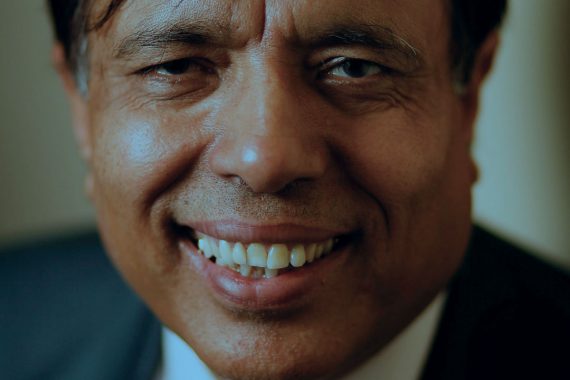Stevens’ ambitious plans require a reality check

Simon Stevens, the NHS England chief executive. has outlined proposals to safeguard the future of the NHS. One has to applaud his guts when, during an interview for BBC Radio 4, he damned the Government’s own 2012 Health and Social Care Act as an irrelevant miss-step (‘moving deckchairs’) which his reforms were now correcting.
In nutshell, he is proposing to scrap the waiting times targets, to save the failing emergency care system, and expect primary care to deliver all without extra funding. Yes, they’ve promised £2.4bn a year more by 2020 – but this won’t get to practices in time. Stevens is hoping to persuade all GP practices to offer evening and weekend appointments, so that A&E departments don’t become one-stop-shops over the weekend. He further proposes creating an England-wide network of about 150 urgent treatment centres to take the strain of overcrowded A&E units, which Simon says 3 million people a year visit unnecessarily with injuries and minor ailments. The centres will be open for 12 hours every day of the week and be staffed by GPs and nurses.
He is also pledging to put 3,250 extra GPs, plus 1,300 clinical pharmacists and 1,500 more mental health therapists into GP surgeries by 2019. Very ambitious aspiration Mr Stevens, but very challenging to deliver. Let’s have a reality check. Official data from NHS Digital, published last week, show a decline of 445 full-time equivalent (FTE) GPs, including registrars, locums and retainers, between 30 September and 31 December.
The situation in other crafts of the NHS is no better. Brexit is set to cause a severe shortage of nurses in the NHS too, which is already facing a chronic lack of them in many hospitals and GP surgeries. We are sitting on the time bomb of recruitment and retention crisis in the NHS. How does Mr. Stevens address this fundamental problem for the crisis in the NHS?
The NHS performance is at a breaking point, though not yet collapsing due to the sheer determination and good will of its workforce; NHS finances are as bad as in eighties and nineties, overall productivity is falling; deteriorating workforce relations due to stubbornness and arrogance of the health secretary, Jeremy Hunt, have opened into an extraordinary rift with junior doctors, consultants and GPs; and public satisfaction with the NHS is showing decline.
The greater reliance on agency staff and difficulty recruiting general practitioners is further evidence of an overstretched NHS and the result of poor workforce planning by the government. The ‘magnificent’ NHS is under-funded and ‘in deep trouble’.
Social care too is seriously underfunded. The £2bn for social care over the next 3 years is less than half of what has already been cut from social care. The NHS is already compensating the lack of social care funding through its own budget and GPs having to provide the lack of provision in the social care sector.
Simon Steven’s plans will prove unsustainable without urgent further investment, and with little capacity to ‘transform’ in any meaningful way other than by reducing the provision of services on a drastic scale.
A BMA investigation has revealed, at least,£9.5bn is urgently neede just to create the infrastructure to deliver the projects, with costly buildings and investment in community facilities, like urgent care centers vital to the plans.
Theresa May and Jeremy Hunt need to be honest with public and move to end the chronic underfunding of our NHS and put together a long-term plan with Simon Stevens to help solve the ever-growing issues around staffing and funding the health and social care system as a whole.



 Oviva’s fully remote Tier 3 Weight Management programme
Oviva’s fully remote Tier 3 Weight Management programme





